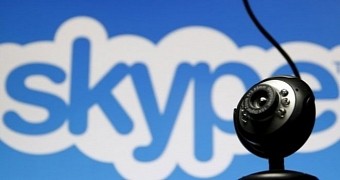Skype went down late June 19 in most of Europe and in select parts of the United States, with Microsoft struggling for nearly 24 hours to restore access to the service, especially on the Old Continent where some users were still unable to log in two days later.
And while Microsoft itself acknowledged the Skype issues, no word has been said on the cause of the outage.
Hacking group CyberTeam is taking responsibility for Skype suffering from connectivity problems, saying its members are the ones who knocked the service offline and promising to go after other targets very soon.
In a tweet posted on June 19, CyberTeam says the outage experienced by Skype was “just the beginning of a new era,” with Valve’s Steam gaming service to be the next target.
Microsoft: We’re still investigating
While at this point it’s hard to tell if CyberTeam is indeed responsible for the Skype downtime or whether Microsoft’s service went offline because of a DDoS attack, the software giant said late June 20 that some fixes were still being applied and an update would be provided when everything returns to normal.
“We have made some configuration corrections and mitigated the impact. We are continuing to monitor and we will post an update when the issue is fully resolved,” Microsoft said on June 20 at 20:00 GMT.
Originally, the company said that it was aware of problems experienced when trying to log in, claiming to have fixed the issues a few hours later.
“We are aware of an incident where users will either lose connectivity to the application or may be unable to send or receive messages. Some users will be unable to see a black bar that indicates them that a group call is ongoing, and longer delays in adding users to their buddy list,” the company said.
Skype seems to be working fine for the majority of users at the time of publishing this article, but there still are complaints on Twitter that the service is unable to send and receive messages. We’ve reached out to Microsoft for more information and we’ll update the article when an answer is offered.
Skype down by CyberTeamHello World !!!#SkypeDown - #SkypeOff - #CyberTeam — CyberTeam (@_CyberTeam_) June 19, 2017
Skype Down by CyberTeam !!!Images before the attack happens on Skype. Just the beginning of a new era, next steam#skypedown - #cyberteam pic.twitter.com/Geimu3Fbp1 — CyberTeam (@_CyberTeam_) June 19, 2017

 14 DAY TRIAL //
14 DAY TRIAL //